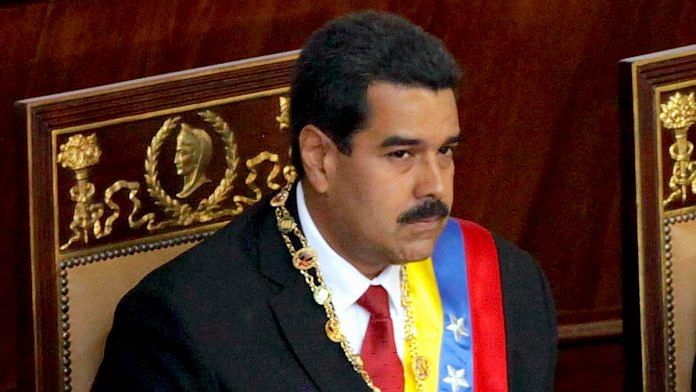State-owned Russian oil company Rosneft is Venezuela’s last remaining petrol supplier, Financial Times reports. Under heavy US sanctions, Venezuelan President Nicolás Maduro is heavily reliant on Russian supplies to keep him in power.
In January this year, US President Trump imposed a near total economic embargo on Venezuela in an attempt to force Maduro, a controversial leader at home, out of office.
Under Maduro, Venezuela has reportedly faced the biggest economic collapse outside of war in decades, surpassing the fall of the Soviet Union and Cuba’s economic collapse in the 1990s.
The US, along with the EU and several Latin American countries, has recognised opposition figure Juan Guaido as the legitimate interim leader of Venezuela.
Being Venezuela’s sole oil supplier, Russia has an unprecedented amount of leverage over the political situation in Venezuela, FT notes in its report.
Venezuela has the largest oil reserves in the world and used to refine its own petrol. Neglect and lack of investment have caused domestic crude oil production to fall dramatically, making the country dependent on imports.
Venezuela began to import petrol from a range of countries, but US sanctions imposed in January have caused most suppliers to withdraw from trade deals.
Rosneft was hit with some US sanctions during the 2014 Russian annexation of Crimea, but Washington DC has held back from imposing further penalties. Rosneft produces 5 per cent of the global oil supply, and any serious sanctions could see oil prices rise quickly.
Maduro and the Venezuelan crisis
Maduro came to office after Venezuela’s previous president Hugo Chavez died in 2013, eventually winning two closely-contested elections — the last one, in 2018, marked by a controversially-low voter turnout.
Shortly after he came to power, global oil prices fell. Chavez had been using oil revenues to fund several state-owned companies in the industrial sector, which he had nationalised as part of his socialist platform.
With Venezuela unable to support these industries, production and exports fell and inflation soared. This led to reduced import capabilities and shortages of basic goods like milk, medicine, and toilet paper.
In the face of widespread political backlash, Maduro has been accused of being a dictatorial leader. Among other things, in 2017, he created a constituent assembly to draft a new constitution, which many saw as a move to supersede the government and further consolidate his own power.
Lakhs of Venezuelans have been protesting against his regime since 2016. Over 40 lakh Venezuelans have reportedly fled the country since to escape food and medicine shortages, unemployment, and poverty.
Also read: How Venezuelan Army’s response to humanitarian aid will be crucial to country’s future



